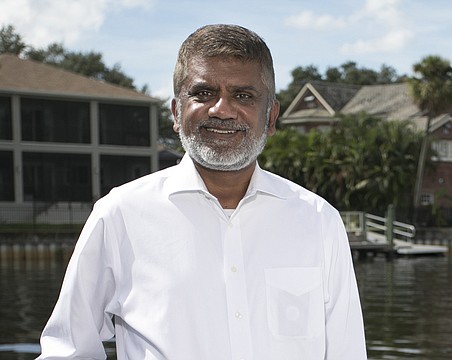When commercial real estate brokerages DTZ and Cushman & Wakefield paired up last summer, officials from both firms — as well as their competition — touted the idea that consolidation provided a platform to better compete in today's environment.
But in the wake of that $2 billion merger aimed at competing better against rival giants CBRE and JLL, further consolidation in the industry not only hasn't occurred along the Gulf Coast, but mid-sized brokerage firms here have held fast to their independence.
Moreover, companies like Newmark Grubb Knight Frank, Avison-Young, Franklin Street, Colliers International and Sperry Van Ness maintain that their size provides them with a tactical advantage when it comes to focusing on clients and serving their needs.
“Clients generally have one commonality,” says Pike Rowley, managing director of Florida operations for Avison Young, a Canadian-based commercial brokerage that maintains seven offices with 65 agents in the state.
“They want to know if they're going to be a priority. We've been very deliberate and strategic about our current and intended size,” he adds. “We're not striving to be CBRE or JLL.
We're a mid-sized firm, but we pride ourselves on having a sophistication level that's as good as anyone.”
Franklin Street and Newmark Grubb, meanwhile, says they've differentiated themselves by going after unique lines of business, such as property insurance, and by incentivizing agents to be more entrepreneurial while also being client-centric.
“We're not focused on getting transactions done,” says Franklin Street Real Estate and Management Services President Kurt Keaton. “We're in this to solve whatever problem you as a client might have.”
To do that, Franklin Street holds weekly training sessions with its agents to keep them up on technology, the latest business trends and to hone their real estate skills.
The largest firms, too, smaller brokerages say, can be weighed down by bureaucracy and by a focus that is almost exclusively on multinational companies and Fortune 500 firms.
The combined Cushman & Wakefield, for instance, is expected to generate about $5 billion annually in revenue this year, while managing more than 4 billion square feet of commercial space. In Tampa, the firm has 50 real estate agents and 120 professionals.
Officials there and at JLL and CBRE, however, contend that rather than being a liability, their larger size allows them to better integrate a variety of services on a larger platform.
In some cases, the very structure of some mid-sized brokerage firms has been altered from a traditional model to attract and retain talent, which they say is key to success in today's environment.
Newmark Grubb and Avison Young, for instance, both provide agents with the ability to own stock in their respective privately held companies.
“We're all moving in the same direction,” says Newmark Grubb Senior Managing Director Rick Narkiewicz. “We've adopted a player/coach model here and eliminated layers of management. For us, it all boils down to the culture we're developing here and our people.”
To demonstrate how its model is working, Narkiewicz says last year Newmark Grubb's nine Tampa-based agents generated transactional volume of $553 million.
Likewise, agent collaboration, an entrepreneurial mindset and technological have set Colliers International Tampa Bay, Central Florida and Southwest Florida apart, says president Ryan Kratz.
“The business has changed a lot in the past five years. There's so much data to be had now, and it's everywhere, so what we've focused on is the humanization of the business. To succeed now, talent and resources combined is what it takes.”
Not that Colliers International, which is part of a global network of more than 500 offices in 67 countries, hasn't also focused on technological prowess. Kratz says agents there have married local knowledge with that of emerging, worldwide trends in business and real estate to effectively differentiate the firm.
And while the regional affiliate was sold to Colliers International's corporate parent in January, the Gulf Coast firm remains autonomous — independence that allows it to make swifter decisions for clients.
“Bigger companies tend to chase bigger deals, but that means there's still a lot of business to be done by mid-sized firms in mid-sized markets,” says Ray Sandelli, a former top CBRE executive for Florida who is now managing director of CRE Consultants, a firm that maintains offices in Fort Myers and Naples.
Avison Young's Rowley takes that idea a step further.
“A lot of consolidation in the (real estate) services industry today is happening purely as a return on investment driver for passive investors,” he says. “We started with an architecture that's the exact opposite of that. Ours is a totally different mindset.
“The larger firms tend to generate business differently. Our agents generate on the ground, whereas the larger companies have business development officers who generate business and then hand it off to agents. We eliminated all those middlemen. Our agents have a direct role with the client, and we think that makes them a little more accountable.”
Rowley says, too, that that structure is also more lucrative for the agents in its 75 offices.
- K.L. McQuaid






